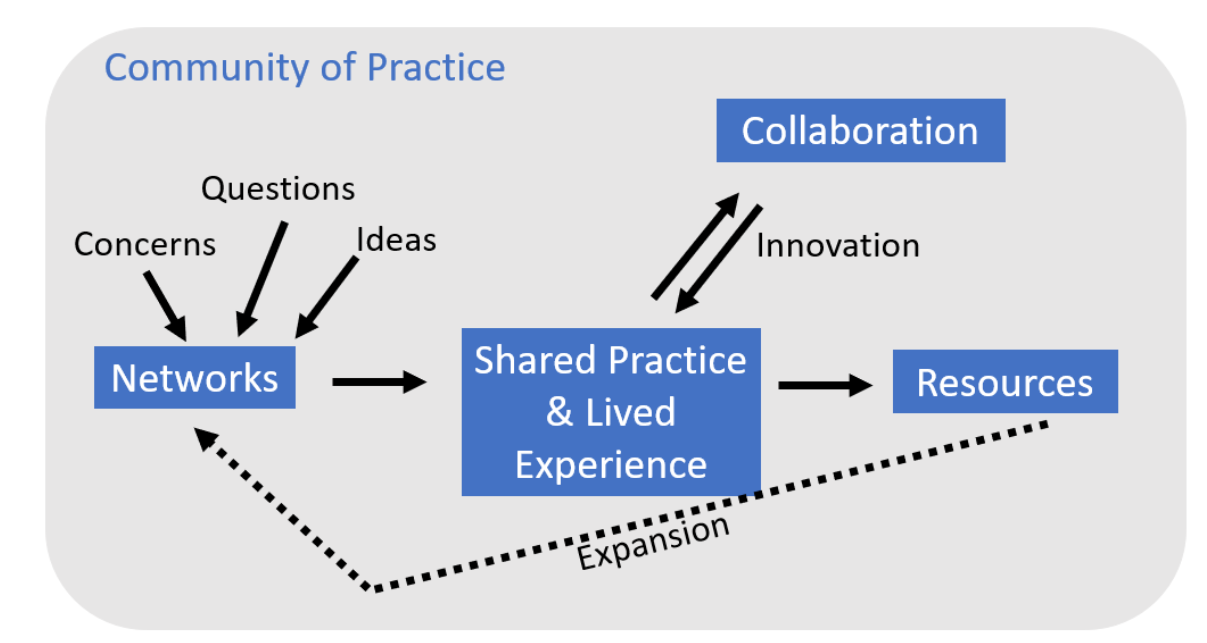How do you offer students a laboratory learning experience when Covid-19 has closed the labs?
Ian Turner, Rachel Bolton-King, Nigel Francis, Leisa Nichols-Drew, and David Smith from the University of Derby explain how they created open online knowledge exchange networks to support students.
Author: Ian J. Turner
Co-Authors: Rachel S. Bolton-King, Nigel J. Francis, Leisa J. Nichols-Drew, David P. Smith.
1. What exactly is the shift in culture and/or organisational practice that you wish to highlight?
The onset of the COVID-19 pandemic in early 2020 had an unprecedented effect on Further and Higher Education. Institutions were forced at extremely short notice to transition from face-2-face to completely remote teaching. In 2021, as restrictions were gradually lifted, educators once again had to adapt their practice to accommodate blended teaching models. The traditional reliance on practical-based pedagogic approaches in the sciences created a unique set of challenges for educators, as science programmes’ have a fundamental requirement for laboratory skills development almost exclusively modelled on psycho-motor skills and hands-on experience. Alternative models such as commercial virtual laboratory platforms existed in some science disciplines, but there were limited freely available tools that covered the full diversity of science provision.
Identifying the problem and need for action, the authors created two open online collaborative networks for contemporary knowledge exchange and creating a richer educational experience for students. The networks were #DryLabsRealScience (DLRS) for supporting Life Sciences and #RemoteForensicCSI (RFC) for Forensic and Crime Science. Both networks are based around the same core architecture of regular free online seminars, structured around two to three short talks with open questions and discussion. The networks were available to the whole education community with members composed of students, HE/FE educators, practitioners and commercial education resource providers. The networks’ talks plus additional resources like ‘How To’ guides were curated and freely shared on Lecturemotely and YouTube, allowing the broadest possible audience to benefit.
The online platform was both inclusive and accessible. Learning and teaching-focused events such as conferences did exist but were often infrequent (annual) or restricted in terms of access (e.g. requiring a fee, travel or considerable time abstraction). Similarly, though many examples of collaboration existed pre-COVID, there was a pervasive siloed mentality for many when it came to learning and teaching practice. The complete openness of both networks represents a step-change in open-access sharing of pedagogical innovation across a wide range of institutions and sectors. The networks are facilitated by the authors, but they are very much community-owned and driven. The speakers and associated resources were selected by the community themselves, where there was a demand for a specific topic or direction the authors looked to respond to this and source speakers with the expertise.
2. What did ‘working well’ look like?
To date, the central repository has received over 15,500 views, with individual videos of the talks accumulating >2,100 (DLRS) and >1,700 views (RFC). The membership of both networks is broad reaching, with members predominantly from the UK, Europe and USA. The resources of the networks have been shared in a range of mediums including The Biologist and Advance HE (DLRS), Chartered Society of Forensic Science (RFC) and Laboratory News (Both).
The number of seminars, attendees and visitors to repositories and YouTube sites are all positive indicators of the networks’ success. However, the true assessment of their impact is the way they have been received by the community. Both networks evolved from a response to a very specific problem, to establish communities of practice where educators are connected by a shared passion for enhancing the learning and teaching experience. The openness and willingness to share not only best practice but lived experience and emergent ideas, lived experiences and ‘failures’ with the wider community created a proactive culture of collaboration and working together on shared problems.

Members, in independent surveys, have highlighted the sharing of best practice and the opportunity to collaborate with others as driving factors in their continued engagement with the networks. The openness of the resources has allowed easy adoption and adaption of concepts and ideas to local contexts. It has also been personally useful for many members to showcase their activities to a wider audience; in some cases, this has been the springboard to peer-reviewed publications and other dissemination platforms.
#DryLabsRealScience network members report that engaging provides them with space for knowledge development, collaboration, and innovation. They also felt the online networking activities created a more accessible and, importantly, cost-free means for a wide range of staff to participate. Likewise, #RemoteForensicCSI participants indicated they value the network as a form of informal continuous professional development, sharing innovative solutions and subject-specific pedagogy.
3. How could this practice be spread?
The learning from these networks should be capitalised on in two ways. Firstly, it is imperative that we do not return to any pre-existing siloed ways of working with the return of face-2-face teaching. Networks, such as these, must build upon the spirit that enabled them to be successful in the first place; they must adapt to new pedagogical challenges and emergent requests from the community and their learners. It is also imperative that such networks transverse the FE/HE/industry transitions to better understand the respective challenges and needs of the sector.
Secondly, other subject areas and practitioners should not be afraid to establish their own communities of practice. The following are four basic principles that we believe are fundamental for a successful community of practice network:
1. Altruism – The facilitators need a selfless concern for the experience of the broader education community.
2. Simple Platform – The network should use a free, open-access digital tool or repository to minimise barriers to access.
3. Community Drive – The community that attend the events should directly inform the agenda for topics and speakers that meet their needs.
4. Strong Network – The use of social media and professional networks to promote the network and share its resources. Expanding the network’s coverage and allowing new members an easy entry point.
Join the conversation at the Digital Culture Forum

